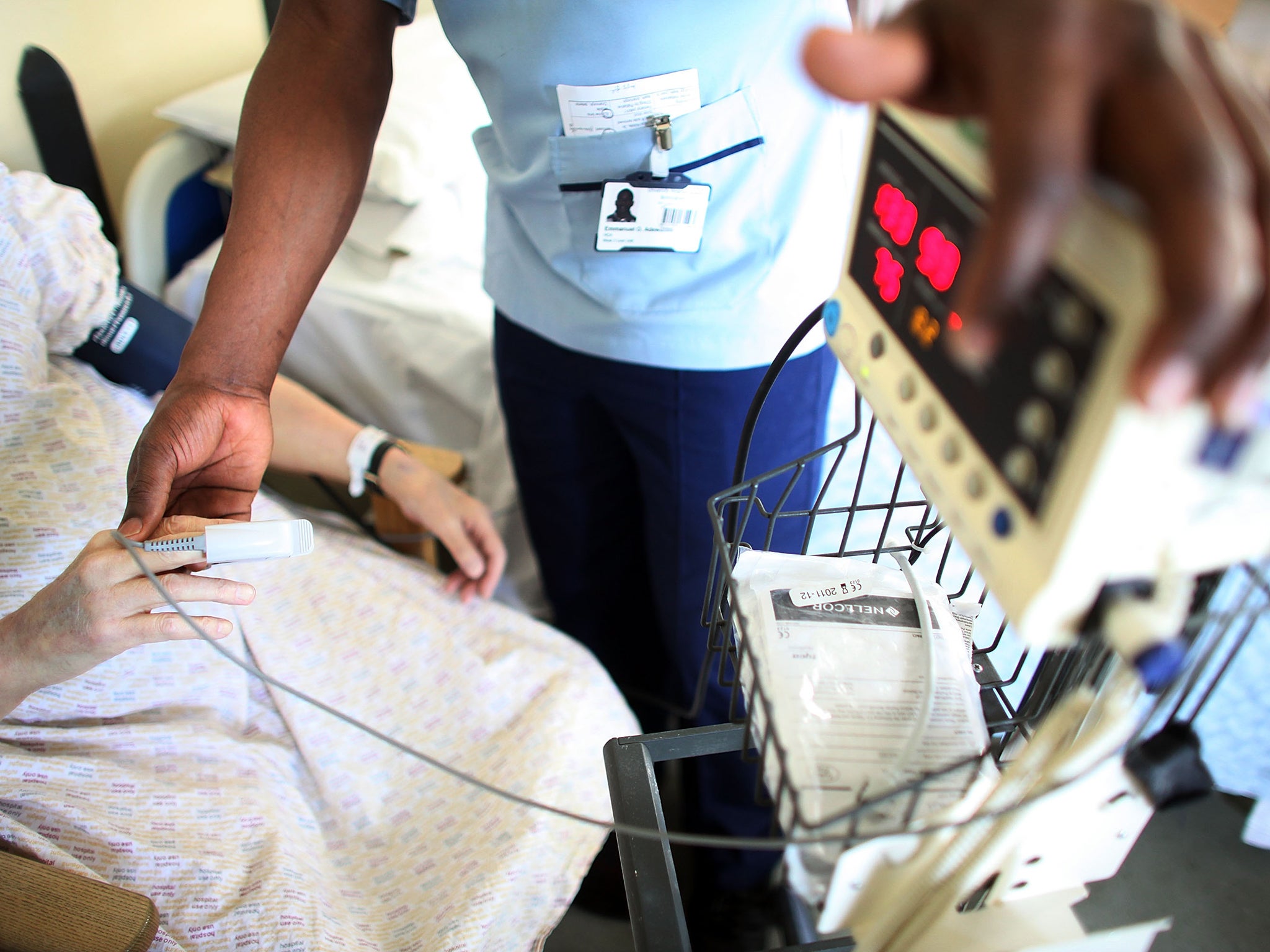EU referendum: NHS would face staffing crisis in the event of Brexit, survey of hospital leaders finds
80% of respondents felt that leaving the EU would have a negative impact on trusts’ efforts to recruit health and care staff

Britain’s National Health Service would face a staffing crisis if the country were too pull out of the European Union and medical research would be materially damaged, a survey of hospital leaders has found.
Brexit campaigners have put the future of NHS front and centre of their efforts to persuade the public to back a vote to leave in the referendum. Senior figures like Boris Johnson have claimed that up to £350 million more a week could be spent on the health service that, they say, currently gets sent to Brussels.
But the survey of NHS Trust chief executives and chairs reveals deep scepticism about the claims made by the leave campaign with 75 per cent saying that Brexit would have a negative impact on the NHS as a whole. No respondents felt that leaving the EU would have a ‘very positive’ impact.
Among the findings of the survey by NHS Providers that represents 96 per cent of the 238 NHS Trusts were:
- More than third of those questioned felt leaving the EU would have some or a very negative impact on the amount of funding the NHS receives. However 40 per cent felt leaving the EU would have no impact on the amount of funding the NHS receives.
- Almost two-thirds (65%) felt that leaving the EU would have a negative impact on access to knowledge from clinical trials, networks or other research and innovation while 80 per cent felt that leaving the EU would have a negative impact on access to funding for research and innovation.
- However over two fifths (42 per cent) felt that leaving the EU would have some or a very positive impact on procurement and competition rules affecting their trusts.
Perhaps the most significant finding was on staffing where 8 in 10 respondents felt that leaving the EU would have a negative impact on trusts’ efforts to recruit health and care staff.
Around 17,000 (17,138) nurses and health visitors are from EU countries accounting for 6 per cent of the total staffing numbers.
The figure for doctors is even higher with just under 10,000 hospital doctors coming from EU countries – around nine per cent of the total.
Commenting on the findings, NHS Providers chief executive, Chris Hopson, said overall it was clear that NHS leaders were sceptical about the case for Brexit.
“In response to the big question on whether leaving the EU would have a negative impact on the NHS, the vast majority of NHS leaders in our sample believed it would,” he said.
“This is not an exit poll and we do not claim this to be extensive research of the whole NHS, but it does show us the strength of feeling on what could be a generation-defining decision.
“Our survey shows the concern NHS leaders have about a range of issues if the UK were to exit the EU. High up this list of concerns is the impact on recruiting staff and access to funding for research and innovation.”
NHS Providers added that around 25 per cent of chairs and chief executives from England’s hospital, ambulance, mental health and community trusts had responded to the survey which is in line with other surveys carried out by the organisation.
Professor Martin McKee, Professor of European Public Health at the London School of Hygiene and Tropical Medicine, and a member of the campaign group Better In said it was clear that leaving Europe would open the NHS up to future risk
“From the leaders of NHS trusts, to doctors, former health secretaries and the Chief Executive of NHS England himself, the people who work in and care about the NHS are clear that it is stronger in Europe, while leaving would put it at risk,” he said.
“Being part of the EU also means the NHS benefits from funding for vital medical research, co-operation in fighting diseases like cancer, and the hard work of over 100,000 EU citizens in our health system.
“Our NHS is stronger in Europe, while leaving would be a leap in the dark that would put it at risk.”
Join our commenting forum
Join thought-provoking conversations, follow other Independent readers and see their replies
Comments